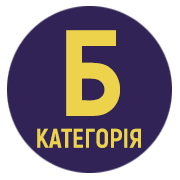THE HISTORY OF KOBZARISM AS A MEANS OF DEVELOPING THE COGNITIVE INTEREST OF BEGINNING BANDURA PLAYERS AT A CHILDREN'S MUSIC SCHOOL
Abstract
The article is devoted to the methodological aspects of developing the cognitive interest of beginner bandura players, in particular, by means of the beginnings of the history of kobzarism. Since the art of kobzars is an original component of the culture of the Ukrainian people, the authors believe that the history of kobzarism and bandura playing can be an important factor in solving the problem of developing the cognitive interest of music school students. It is noted that interest ensures that an individual is directed to the realization of the purpose of his or her activity, i.e., it contributes to familiarization with new facts and a more complete and deeper reflection of reality. It is proved that the presence of interest provides motivation for the educational activity of the individual. Interest significantly activates cognitive processes, including their emotional and volitional components. Cognitive interest in the narrow sense refers to the acquisition of knowledge and skills in a particular discipline, in the broad sense it implies the presence of a constant interest in various manifestations of life, which motivates the individual to activity. The authors prove that it is important for teachers to use a comprehensive methodological toolkit aimed at developing cognitive interest in its integrity. In the context of the discipline "Musical Instrument Bandura", which provides for a multi-vector goal, it is important to constantly maintain the cognitive interest of the bandura player. In particular, both to the subject matter of the course and to the world of bandura playing in their further independent after-school activities. The authors believe that the use of elements of the history of bandura making as starting points in the implementation of lesson objectives contributes to the development of a sustainable cognitive interest of bandura players. The following approaches are envisaged: performing illustration of theoretical provisions by the teacher; use of bandura lessons that are non-traditional for a children's music school; involvement of musical repertoire that stimulates learning activities; ensuring support for a multiartistic complex with the dominance of musical art.
References
Ілляш С. (2012). Педагогічні умови формування пізнавального інтересу до навчання в учнів початкових класів. Молодь і ринок, 6, 81–84.
Буряк В.К. Пізнавальний інтерес та способи його формування. http://surl.li/qrgur.
Буцкіна С. (2000). Проблема формування мотиваційної готовності дітей до навчання в школі. Вісник наукових досліджень, 2, 69–72.
Браніцька Т. (2003). Формування у молодших школярів інтересу до музикування на народних інструментах в позакласній роботі: автореф. дис. … канд. пед. наук. Київ.
Коберник О., Коберник Г. (1999). Активізація навчально-пізнавальної діяльності школярів. Рідна школа, 12, 55–60.
Типова навчальна програма з навчальної дисципліни «Музичний інструмент бандура» середнього (базового) підрівня початкової мистецької освіти з музичного мистецтва початкового професійного спрямування, інструментальні класи. (2021) / уклад. О.І. Мозгова та ін. Київ.





